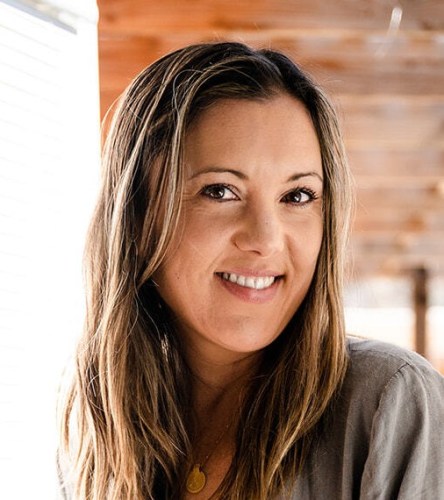Salesforce Overheard: 51 Examples of Jargon — Here’s What To Say Instead

Let’s all get together and ban business jargon, shall we?

Carolyn Warsham
Business jargon. Almost nobody loves it, yet somehow sneaky business terminology rears its head within your otherwise wonderfully relatable copy and conversations at work. All. The. Time.
There are common crutch phrases like “move the needle” and “put a pin in it.” (What’s with all the sharp, pointy things, friends?) And then there are somewhat atrocious sayings like “eat our own dog food.” (I’m not even going to go there.)
As the director of editorial here at Salesforce and the co-owner of our company’s Voice and Tone program, I have a lot of thoughts on the jargon omnipresent in the business world. The problems with business jargon are many. First and foremost, it’s exclusive, meaning only understood by a select group of people. People outside your bubble may not have the faintest clue what you are referring to when you say that something is “greenfield.” (I’ve been there!) So if you’re aiming to be inclusive with your language, please stay far away from business jargon like this.
Skip business jargon and focus writing the way you talk
Second, it’s not human or conversational. Would you use terms like “wheelhouse” and “silo” at your 4-year-old niece’s birthday party? Probably not. But do you hear words like this in the occasional corporate meeting? My guess is yes. Let’s make the articles you write for your job places where your readers actually want to hang out. The key to this? Use words that represent the way you talk to someone in your family.
How to speak to your audience
We at Salesforce work hard at developing our voice and tone. Read our tips to get started.



Finally, some business jargon is a result of outdated societal norms. It doesn’t take much digging on the internet to find the racist or misogynistic origins of phrases like blacklist, quarterback, and grandfathering in. I think we can all agree that it’s time for some new norms.
Be intentional with words to boost inclusivity and equality
There’s one more point I want to make about business terminology. Psychologically speaking, people fall into speaking and writing with these types of words because they want to fit in. Humans are social beings. If the majority of those around us are using business jargon, our primal instincts kick in, and we start using it too. This is the ancient cave dweller part of our brain — the part that doesn’t want to face being left behind or potentially being killed for standing out.
Thank goodness we don’t live in cave times any more! We can consciously choose the words we use to boost inclusivity, humanity, and equality at work.

Try these words instead of business jargon
In the spirit of #NoNewJargon (yes, that’s a reframe of #NoNewTaxes), I’m sharing some commonly used business terms below. And, of course, I’m passing on some helpful words to use instead, courtesy of copywriters, technical writers, and other wordsmiths across Salesforce.
| Instead of using… | …try this instead |
|---|---|
| The Ask | Request |
| Alignment | Agreement |
| All on the same page | Shared understanding |
| Bandwidth | Time |
| Big Hairy Aggressive Goal (BHAG) | Aggressive goal |
| Buy-in | Support |
| Circle back | Revisit |
| Critical Mass | Consensus |
| Deep dive | Detailed analysis |
| Deliverable | Output; work product |
| Double click | See more detail |
| Drill down | Learn more |
| Ducks in a row | Prepared |
| Eat our own dogfood | Use our own products |
| Game changer | Made a difference |
| Get up to speed | Learn the latest information |
| Granular | Detailed |
| Greenfield | New |
| Groundswell | Positive momentum; growth |
| Heads up | Inform |
| Holistic | Complete |
| Impact | Effect |
| Laser focus | Focus |
| Learnings | Knowledge |
| Leverage | Use |
| Low-hanging fruit | Easiest tasks to perform |
| Massage | Adjust |
| Mindshare | Awareness |
| Move the needle | Make progress |
| Nailed it | Did a great job |
| Next generation | New |
| Optimize | Make better |
| Organic | Natural |
| Out of the box | Standard functionality |
| Out of pocket | Unavailable |
| Paradigm | Model |
| Put a pin in it | Discuss later |
| Quick win | Easy success |
| Reach out | Contact |
| Seamless | Smooth |
| Silos | Separate teams |
| Solutioning | Solving |
| Sweet spot | Area of expertise |
| Sync up | Meet |
| Synergy | Common understanding |
| Take offline | Discuss later |
| Table the discussion | Discuss later |
| Tee it up | Introduce |
| Touch base | Connect |
| Unpack | Deconstruct |
| Utilize | Use |
| Value-added | Improved |
| Wheelhouse | Area of expertise |
Have another business term to add to the list? Tweet your feelings to @Salesforce and we’ll add them.
Salesforce’s Chris Duarte on how to start your own voice and tone program.
























